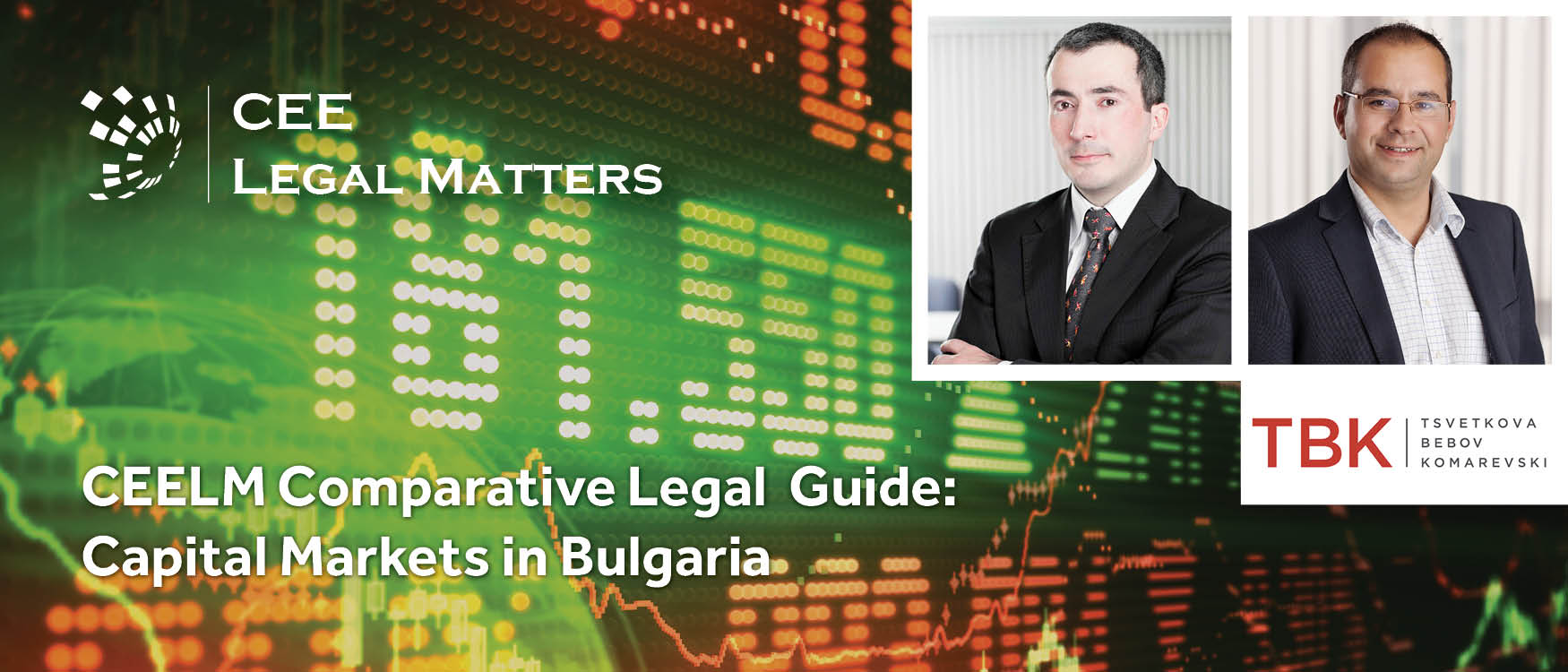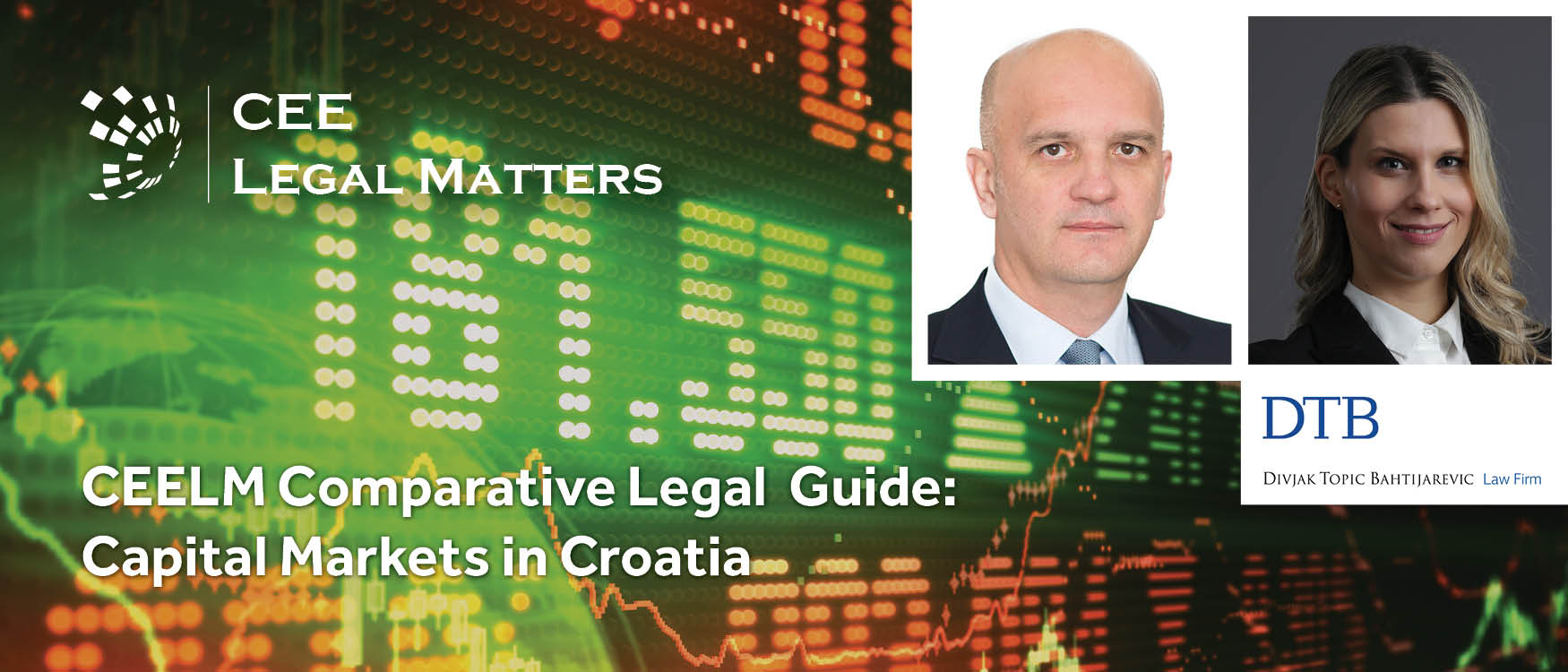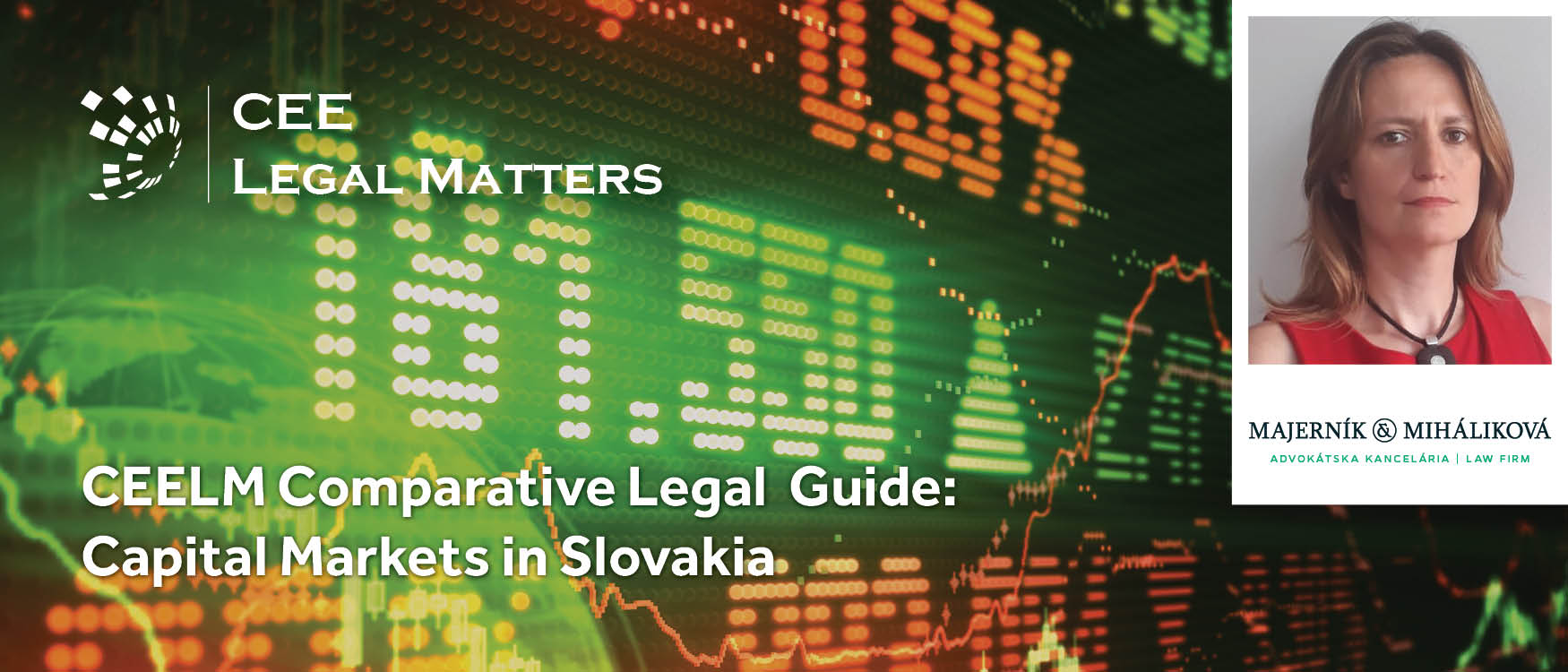Contributed by Paksoy.
1. Market Overview
There has been a slowdown debt and equity capital markets activities in Turkey since mid-2018. Global uncertainties and geopolitical factors have had an impact on the emerging markets, including Turkey. There was a marked slowdown in growth in the second half of 2018 due to significant volatility in foreign exchange rates and increases in interest rates, particularly in the third quarter. With negative growth of 2.8% in the final quarter of 2018, the Turkish economy only grew by 2.8% in 2018. The first two quarters of 2019 also experienced negative gross domestic product growth, though growth in the second half of the year recovered, resulting in a positive growth in GDP of 0.9% during 2019.
The annual consumer price index (CPI) inflation rate was 20.3% in 2018, while annual domestic producer price inflation during the year was 33.6%, both increasing significantly due principally to the depreciation of the Turkish Lira. However, the rate gradually declined and Turkey ended the year with an annual inflation rate of 11.8%.
1.1. Regulators
1.1.1. The Capital Markets Board
The principal functions of the Capital Markets Board (CMB) are: (i) to foster the development of the securities markets in Turkey and thereby contribute to the efficient allocation of financial resources in the Turkish economy; and (ii) to ensure adequate protection for investors.
The CMB supervises and regulates, among others, public companies and issuers of capital markets instruments, market infrastructure institutions including stock exchanges and central custody and settlement institutions, banks and other financial intermediaries, mutual funds, investment corporations, investment consulting firms, real estate appraisal companies and rating firms that offer their services to institutions operating in the capital markets. The CMB is authorized to request any kind of information and documents to determine the compliance of the entities it oversees with the Capital Markets Law No. 6362 (CML) and with its own regulations, communiqués, and decisions.
As the capital markets regulator, the CMB promulgates regulations relating to Turkish capital markets. The CMB regulations set out a regulatory approval process for all securities to be publicly offered in Turkey, as well as certain private placements. In connection with its supervisory role, the CMB requires companies subject to its jurisdiction to prepare and publish balance sheets, income statements and annual reports, all of which must be prepared in accordance with the accounting principles and standards promulgated by the CMB. Moreover, unaudited quarterly reports must be filed in respect of each financial period ending in March and September, and a semi-annual report, subject to limited review by the independent auditors, must be filed with the CMB in respect of the first six months of each year. Upon the occurrence of any special events (such as a merger or acquisition), the CMB may require that additional information be disclosed by a public company or by directors or major shareholders of a public company. Furthermore, each situation that may have a material effect on the operations and the financial situation of a company participating in the capital markets must be immediately disclosed to the CMB.
The CMB is governed by a decision-making body comprised of seven members, including the chairman, who are all appointed by the government of Turkey. The term of office of the members of the CMB is six years. Members whose terms have expired can be re-appointed.
1.1.2. Borsa Istanbul
The establishment of Borsa Istanbul A.S. (“Borsa Istanbul” or BIST) was envisaged in the CML, as the successor to the Istanbul Stock Exchange and other securities exchanges in Turkey, for the purposes of creating a single platform. Upon registration of its articles of association with the Istanbul Trade Registry on 3 April 2013, Borsa Istanbul automatically assumed all of the assets, rights and obligations of the Istanbul Stock Exchange and the Istanbul Gold Exchange. Pursuant to the CML, shareholders of Turkish Derivatives Exchange were granted an option right to subscribe for Borsa Istanbul’s share capital in return for Turkdex’s take-over by Borsa Istanbul. This option right was exercised by Turkdex shareholders.
1.2. Biggest ECM and DCM transactions over the past 2-3 years
ECM: Turkey had a good start in 2018. The most important initial public offerings on Borsa Istanbul were (i) Enerjisa Enerji, Turkey’s energy conglomerate and controlled by Turkish Sabancı Holding and German E.ON.; (ii) MLP Saglık (Medical Park Hospitals), one of the leading hospital chains in Turkey; and (iii) Sok Marketler, one of the leading FMCG retail store chains in Turkey. Additionally, Aselsan, a company of the Turkish Armed Forces Foundation, and Yapı Kredi Bank, one of the largest private banks in Turkey, increased its capital in June 2019. Total funds raised from these deals were TRY 2.9 billion and TRY 4.11 billion, respectively.
Showing a trend similar to global equity markets, the Turkish IPO market was slow in 2019. Volume of IPOs decreased by 95% in 2019 compared to 2018. The most important initial public offerings were (i) Naturel Enerji, renewables and energy company; and (ii) Yukselen Çelik, a company active in steel business, in 2019. Additionally, Odas, Sasa Polyester, Gunes Sigorta, Ihlas Gayrimenkul and Karsan Oto increased its capital.
DCM: Similar to previous years, banks were the most active players in the debt market, while non-bank financial institutions come second in 2018 and 2019. At the end of 2018, the bonds issued by Turkish issuers amounted to TRY 90.7 billion. In 2019, debt issuances rose by 18% compared to the previous year and the total amount issued by Turkish issuers was TRY 210 billion.
2. Overview of the local stock exchange and listing segments (markets)
Borsa Istanbul is the sole exchange entity in Turkey in the form of a joint-stock company, bringing together all the exchanges operating in Turkey (i.e., the former Istanbul Stock Exchange, the Istanbul Gold Exchange, and the Derivatives Exchange of Turkey). Borsa Istanbul mainly consists of four markets: the Equity Market, the Debt Securities Market, the Derivatives Market, and the Precious Metals and Diamond Market.
Publicly-held companies from various sectors are traded in the Equity Market, and this trading is carried out in the following sub-markets:
a. the BIST Stars market, on which the shares of large-sized companies with a market value of free-float shares of at least 150 million Turkish lira are traded;
b. Structured Products and Fund Market (formerly the Collective and Structured Products Market), on which the shares of securities investment companies, real estate investment companies, venture capital investment companies, warrants issued by intermediary institutions and exchange-traded funds are traded;
c. the BIST Main market, on which the shares of medium-sized companies with a market value of free-float shares under 150 million Turkish lira are quoted;
d. the BIST Emerging Companies Market, on which the shares of emerging companies are traded;
e. the Pre-Market Trading Platform, on which the shares of certain companies determined by the CMB pursuant to its Decision No. 17/519, dated 3 June 2011, have been admitted to trading;
f. the Watchlist Market, on which the shares of companies under special surveillance and investigation owing to extraordinary situations with regard to transactions on Borsa Istanbul, insufficient compliance with disclosure requirements, or other events that may necessitate a temporary or permanent suspension of the trading are traded; and
g. the Equity Market for Qualified Investors, where the shares of companies are;
- issued for direct sale to qualified investors as defined under relevant legislation of the CMB (CMB-qualified investors) without being publicly offered; and
- traded only among qualified investors of the CMB.
In addition to these market segments, an Official Auction Market may be opened when necessary, allowing the trading of stocks by courts, executive offices and other official entities in a separate market.
There is one other market – the Primary Market – on which the shares in companies being publicly offered and listed for the first time on Borsa Istanbul, and any additional shares offered following rights offerings of companies listed on Borsa Istanbul, are traded. In addition to these markets, there are two different transaction structures that are conducted on the Equity Market. Block trades of listed stocks are conducted as specifically regulated wholesale transactions, and pre-emption rights during rights issues (granting the right to subscribe for newly issued shares) are traded separately as pre-emption right transactions.
3. Key Listing Requirements
3.1. ECM
The issuer shall prepare a prospectus used for domestic offering, submit it to the CMB for approval and also apply to Borsa Istanbul to get the offered shares listed. The major requirements for launching an IPO and getting the offered shares listed are as follows:
a. the company’s articles of association must be amended to comply with the CMB rules and regulations;
b. there must be nothing that restricts the transfer or trading of the equity securities to be traded on Borsa Istanbul, or prevents shareholders from exercising their rights; and
c. the issuer’s share capital must:
- be fully paid in;
- except for the funds specifically permitted by law, have been free from any revaluation funds or similar funds in the two years preceding the application for the public offering; and
- regarding the total amount of non-trade related party receivables, not exceed 20% of the issuer’s total receivables or 10% of its total assets.
The issuer must pay to the CMB a fee that is equal to the sum of 0.1% of the difference between the nominal value of the offering shares and their offering price in the IPO, and 0.2% of the nominal value of any shares that are not being publicly offered.
The Listing Directive of Borsa Istanbul (the “Listing Directive”) regulates the listing and trading of securities through a public offering, through a private placement without a public offering and to qualified investors. Under the CMB, only joint-stock companies can become public companies and list their shares on Borsa Istanbul. To list and trade securities on Borsa Istanbul, a company must have been incorporated for at least two years in accordance with the relevant CMB regulations.
The company must meet all the conditions of the group of the market to which it belongs, and the groups are generally determined by the value of the shares offered to the public.
3.1.1. Star Market Group 1
- Free-float market value of shares must be at least TRY1 billion.
- The total market cap of shares in free float must be at least TRY750 million.
- Profit must have been earned in the past two years.
- The minimum ratio of shareholders’ equity to the capital according to the most recent independently audited financial statements must be more than 0.75.
3.1.2. Star Market Group 2
- Free-float market value of shares must be at least TRY150 million.
- The total market cap of shares in free float must be at least TRY75 million.
- Profit must have been earned in the past two years.
- The minimum ratio of shareholders’ equity to the capital according to the most recent independently audited financial statements must be more than 1.
3.1.3. Main Market Group 1
- Free-float market value of shares must be at least TRY30 million.
- The total market cap of shares in free float must be at least TRY5 million.
- Profit must have been earned in the past two years.
- The ratio of shareholders’ equity to the capital according to the most recent independently audited financial statements must be more than 1.25.
Companies that do not meet the minimum market value of TL 30 million criteria are listed in Main Market Group 2.
3.1.4. Other requirements
Under the Listing Directive, the following requirements also apply:
a. two years must have elapsed since the company’s establishment (however, this is not applied for holding companies that have been established for less than two years but own a minimum of 51% in shares of a company that has been established for more than two years);
b. the exchange management must have had the corporation’s financial structure examined and accepted its ability to continue as a going concern;
c. the company must have obtained confirmation from Borsa Istanbul that its financial structure is sufficient for its operations;
d. the shares must not contain any clauses prohibiting the shareholders to use their rights;
e. the company’s articles of association must not include anything restricting the transfer or trading of the securities to be traded on Borsa Istanbul, or preventing shareholders from exercising their rights;
f. there must be no major or material legal disputes that may adversely affect the production, operation or commercial activities of the company;
g. there must be an independent legal report confirming that the establishment and the operation are in compliance with the relevant laws;
h. there must be no material legal dispute that could adversely affect production or other commercial activities;
i. the company must not have:
- suspended its operations for more than three months during the past two years, except for the causes accepted by the exchange management;
- applied for liquidation or concordat (a formal project regarding the liquidation of debts, prepared and presented by the debtor to the court for its approval, under which the debtor is released from his or her debts once the partial payments are completely made); and
- taken part in any other similar activity specified by the Borsa Istanbul board without the board’s permission;
j. the company’s securities must comply with Borsa Istanbul’s criteria on current and potential trading volumes; and
k. the company’s legal status in terms of its establishment, activities and shares must comply with the applicable law.
If an application is to be filed for an initial listing of shares, the listing application shall be made for the whole amount of capital of the relevant company.
3.2. DCM
The issuer must submit the following before trading debt instruments on Borsa Istanbul:
- A listing or registration application with Borsa Istanbul; and
- An application for the approval of the prospectus or issue certificate with the CMB.
The issuer can file the applications to Borsa Istanbul and the CMB using either one of the following methods:
- A filing covering all debt securities to be issued within one year; or
- A filing covering a certain amount of debt securities concerning a standalone issuance.
Debt securities which have been listed or registered for issuance and sold within one year under a Borsa Istanbul resolution can be traded on the debt securities market once an announcement through the Public Disclosure Platform of the Central Registry Agency has been made. Debt instruments which are issued solely to qualified investors can be listed by Borsa Istanbul once the CMB’s approves the issuance certificate.
The issuer must satisfy the following criteria:
- The “operating term criterion”, which states that a minimum of two calendar years must have passed since the company’s establishment date.
- The “audit criterion”, which states that the company must submit financial statements and independent audit reports to Borsa Istanbul.
- The “profitability criterion”, which states that profits before tax must have been earned in at least one of the last two years, as evidenced by its financial statements prior to the application date.
- The “shareholders’ equity criterion”, which states that the total shareholders’ equity in the most recent independently audited financial statement of the company must be more than its paid-in capital.
- The “sound financial structure criterion”, which states that Borsa Istanbul management must have examined the company’s financial structure and accepted its ability to continue as an ongoing concern.
The company must document its purpose in terms of its establishment and activities, together with the legal status of its debt securities representing indebtedness, in order to verify that they are compliant with the respective legislation.
The company’s articles of association must not include any provisions that restrict the transfer and circulation of the securities to be traded on Borsa Istanbul or prevent the shareholders from exercising their rights.
The above application procedure for the listing of stocks also applies to private sector bonds listed on Borsa Istanbul.
4. Prospectus Disclosure
4.1. Regulatory regimes (Prospectus Regulation or similar) – equity and debt
The CMB, Borsa Istanbul, the Central Registry Agency and Istanbul Clearing, Settlement and Custody Bank (in Turkish: Istanbul Takas ve Saklama Bankası A.S.) (“Takasbank”) are the main rule-making and enforcing authorities on IPOs in Turkey. The main legislation applicable to companies considering going public in Turkey are the:
- The CML;
- Communiqué on Shares No. VII-128.1 (the “Share Communiqué”);
- Communiqué on Prospectus and Issuance Document No. II-5.1;
- Communiqué on Sales of Capital Market Instruments No. II-5.2;
- Communiqué on Material Events No. II-15.1 (the “Disclosure Communiqué”);
- Communiqué on Corporate Governance No. II-17.1 (the “Corporate Governance Communiqué”);
- Listing Directive; and
- relevant directives, general letters and announcements of Takasbank and the Central Registry Agency.
Debt securities markets are regulated by the following legislation:
- Turkish Commercial Code (TCC);
- The CML;
- Communiqué No VII-128.8 on Debt Instruments;
- Communiqué No II-5.2 on Sales of Capital Market Instruments;
- Communiqué No II-5.1 on Prospectus and Issuance Certificates; and
- Listing Directive.
4.2. Local market practice
The company whose shares are offered to the public shall complete the offering process with the assistance of an internal working group and external advisers. An internal working group must be set up within the company to carry out the required IPO process. In general, finance and public relations divisions, and other relevant mid-level managers of the company, are included in the internal working group.
In order to complete the full IPO process in a diligent, professional and adequate manner, professional external advisers shall also be appointed. In practice, the main external advisers are as follows:
- an intermediary institution shall be appointed by the company whose shares will be offered to the public and there shall be an agreement with the intermediary institution. There may also be a consortium (for example, in a relatively large IPO) rather than a single intermediary institution to take advantage of the syndicated efforts of several brokerage firms;
- an independent auditor shall prepare the financial statements of the company whose shares are offered to the public in accordance with capital markets regulations. These statements must be audited by an independent audit firm selected from the CMB’s authorised list. The company must sign an audit contract with the selected audit firm;
- a financial adviser who generally advises on the timetable, structuring, valuation, price determination and so on shall also be appointed by the company whose shares are offered to the public;
- a research analyst is adequate for publishing research on the company;
- legal advisers shall be appointed to handle the legal aspects of the full IPO process (e.g., preparing the CMB application documents in line with the CMB and Borsa Istanbul regulations, carrying out legal due diligence, and negotiating the agreements between the company and external advisers); and
- public relations advisers are crucial for attracting as many investors as possible. They publish marketing materials and press releases that explain the company’s core business activities.
4.3. Language of the prospectus for local and international offerings
The prospectus in ECM and DCM deals must be prepared and submitted in Turkish. In IPOs where both domestic and international investors are targeted, an English version of the prospectus is also prepared. The issuers must reflect all material information in English prospectus to Turkish prospectus to enable all investors to reach same level of information.
5. Prospectus Approval Process
5.1. Competent Regulator
Borsa Istanbul and the CMB are the competent regulators in ECM deals.
CMB is the competent regulator in DCM deals. Additionally, if the issuer is active in a regulated sector such as banking or energy, the consent of the relevant regulatory authority should also be obtained before the application to the CMB.
5.2. Timelime, number of draft submissions, review and approval process
ECM: The issuer must prepare a prospectus used for a domestic offering and submit it to the CMB for approval of the primary listing of its shares. Additionally, the following steps are expected to be initially conducted by the company that is considering going public:
- organisation of an internal working group;
- articles of association amendment;
- due diligence work for the IPO;
- preparation of the prospectus;
- selection of an intermediary institution and execution of a market advisory agreement;
- selection of an independent auditor and preparation of financial statements;
- agreement on comfort packages and legal opinions;
- drafting of the marketing presentations, followed by marketing and book-building;
- pricing and allocation of shares;
- simultaneous application to the CMB and Borsa Istanbul;
- approval of the CMB;
- settlement;
- commencement of trading on the relevant market of Borsa Istanbul upon its approval; and
- exercise of any over-allotment and price stabilisation.
Although each deal is different, an indicative timetable for an IPO is set out below, where ‘T’ signifies the first day of trading on Borsa Istanbul.
5.2.1. Timeline
T minus 6 months to T minus 3 months:
- Preparation for the IPO:
- The company’s articles of association must be amended to comply with the CMB;
- Requirements for public companies must be considered;
- Advisers must be appointed;
- Eligibility for an IPO and listing is discussed; and Due diligence is started. Prospectus drafting commences.
T minus 3 months:
- First submission of the prospectus to the CMB.
T minus 2 months to T minus 1 month:
- First draft reports circulated
- Announcement of intention to float made.
T minus 5 weeks:
- Connected brokers’ research is published and the research blackout period starts.
T minus 4 weeks:
- Borsa Istanbul approval of listing is received and the price range is set. The underwriting agreement is signed and the final valuation report is submitted to the CMB. Updated prospectus with price range (subject to approval by the CMB) is made available on the issuer’s and domestic underwriter’s websites. There is a management briefing to syndicate sales. The preliminary immediate or cancel (International Offering Circular) order with price range (subject to approval by the CMB) is distributed. The management roadshow starts.
T minus 3 weeks:
- Submission of final documents to the CMB. End of the period for informing investors of the IPO.
T minus 2 weeks:
- Prospectus approved by the CMB. International book-building starts and announcement of sales.
T minus 9 days:
- Domestic book-building starts.
T minus 6 days:
- The pricing decision is made. Domestic and international book-building ends.
T minus 4 days:
- If requested, the distribution list is sent to the CMB. Offer price and allocations announced. New shares are created, and shares can be sold or transferred.
T minus 1 day:
- Settlement and publication of final International Offering Circular.
T:
- First day of trading and start of price stabilisation (if any).
DCM: issuers must initially pass a resolution setting out the terms and conditions of the issue. A general assembly resolution is required for the CMB application to request an issuance limit. However, the issuer may authorise its board of directors to pass the requisite resolution by way of a general assembly resolution (and that authorisation is valid for 15 months), or through a provision under its articles of association where the articles of association permit this (there is no time limit on this type of authorisation). However, the issuer must make the application for CMB approval within one year from the date of the applicable resolution.
Prior to each domestic offering in Turkey without a public offering, the issuer must also apply to the Central Registry Agency after obtaining the CMB approval on the issuance certificate. However, this application requirement was removed for international offerings on 18 February 2017. While debt instruments issued outside Turkey are no longer required to be registered with the Central Registry Agency, information on the amount, issue date, ISIN, interest commencement date, maturity date, interest rate, name of the custodian, currency of the bonds, and the country of issuance must be submitted to the Central Registry Agency within three business days following the issuance. Any changes to that information must be reported to the Central Registry Agency within three business days following the date of the change.
The CMB fee to be paid by the issuer varies between 0.05% and 0.15% of the offering amount, depending on the maturity of the instrument. Only 75% of those rates apply to issuers other than banks, financial institutions and foreign entities. The approval process of the issuance certificate before the CMB usually takes around three weeks.
In debt securities sales through a private placement, it is sufficient for the issuer to prepare an issuance certificate to be approved by the CMB. However, in a public offering of debt securities sales, the issuer must prepare a prospectus to be approved by the CMB and apply to the stock exchange, Borsa Istanbul to trade the securities.
Debt securities issued for sale to qualified investors can be listed and quoted on Borsa Istanbul only for trading among qualified investors within the framework of the relevant regulations. Debt securities issued for sale through a private placement are generally not listed or traded on Borsa Istanbul. Qualified investors must either register with the Central Registry Agency or sign a statement which contains a clause stating that they are qualified investors.
Except for secondary market transactions of shares, the total number of investors holding the debt securities sold on a private placement basis during a certain period of time cannot exceed 150. This limit does not apply to debt securities sales to qualified investors. Debt instruments sold on a private placement basis can be purchased by both qualified and unqualified investors. In such cases, qualified investors are not taken into consideration when calculating the above cap on investors. Sales to qualified investors can only be affected through a call addressed to those investors or through a process that pre-determines each of those investors.
6. Listing Process
6.1. Timeline, process with the stock exchange
Please refer to sections 3 and 5.
7. Corporate Governance
7.2. Corporate governance code / rules
Certain mandatory and non-mandatory corporate governance rules are set forth in the Corporate Governance Communiqué, the TCC and the CML.
In 2003, the CMB issued a set of recommended principles for public companies, which applied to public companies on a “comply or explain” basis. On December 30, 2011, the CMB published its first piece of legislation, which was subsequently amended from time to time, relating to corporate governance which included certain compulsory and non-mandatory principles applicable to all companies incorporated in Turkey and listed on Borsa Istanbul. The CMB published the Corporate Governance Communiqué in January 2014 which, upon its entry into force, superseded any previous legislation relating to corporate governance.
The Corporate Governance Communiqué contains principles relating to (i) the listed company’s shareholders, (ii) public disclosure and transparency; (iii) the stakeholders of the listed company; (iv) the board of directors of the listed company; and (v) related party transactions (collectively, the “Corporate Governance Principles”). The Corporate Governance Communiqué classifies listed companies into three categories according to their market capitalization and the market value of their free-float shares, subject to recalculation on an annual basis, as determined by the CMB.
The CMB also requires the listed companies to form an audit committee and an early risk detection committee. Formation of nomination committee, corporate governance committee and remuneration committee is advised but optional under the relevant regulations. The CMB also requires independent board members in the board of directors and sets forth detailed qualifications.
7.3. Any other ESG considerations
There are no ESG considerations set forth under the capital markets regulations in Turkey.
8. Documentation and Other Process Matters
8.1. Over-allotment
An over-allotment is an option commonly available to underwriters that allows the sale of additional shares that a company plans to issue in an initial public offering or secondary/follow-on offering. Overallotment option is limited with the issue of as many as 20% more shares than originally planned.
Over-allotment option and price stabilization activities are conducted in accordance with the provisions of the CMB’s Share Communiqué, Borsa Istanbul regulations and the principles as specified in the Prospectus. Disclosure of CMB required announcements are made on the Public Disclosure Platform in relation to the exercise of the overallotment and price stabilization activities as prescribed under the CMB’s Share Communiqué.
Over-allotment is not related to or closely linked with stabilisation. Even if the shares are not over-allotted in a public offering, a stabilisation activity can still be carried out.
8.2. Stock lending agreement
Stock lending agreement can be executed between the selling shareholders and underwriters as regulated under the CMB’s Share Communiqué. However, it is not a common concept in Turkey and the market has not experienced any consequences with this regard.
8.3. Stabilisation
Stabilisation is done by using the monies in the stabilisation account funded by the selling shareholder, the issuer or both. The proceeds from the over-allotment are not necessarily used to buy back the over-allotted shares from the market in order to stabilise the price if that price falls below the IPO price. Therefore, it is available as a legally-permitted and risk-free means for an underwriter to stabilise the price within 30 days following an IPO (though only in cases where the share trade falls below the offering price). The requisite information for stabilisation must be included in the prospectus.
A Turkish lead manager or co-lead manager can engage in price stabilisation activities on its own account or on the account of the company or issuer. The proceeds gained by the company from the offering can be used to finance the price stabilisation, provided that the amount used does not exceed 20% of the gross offering proceeds gained by the company. Further, the nominal value of the shares to be purchased from the market to support the price cannot exceed 20% of the total nominal value of the offered shares, including over-allotted shares.
If there are secondary and primary shares, the proceeds of the secondary and any over-allotted shares will be used to finance the stabilisation activities. The fund which consists of 20% of the proceeds of the primary offering will not be used before the proceeds of the current shareholder’s secondary shares are exhausted. The selling shareholder is also entitled to provide unlimited additional funds into the account.
Under the stabilisation agreements, the stabilisation manager has exclusive discretionary authority to undertake stabilisation activities during the stabilisation period. During the stabilisation period, the stabilisation manager can (but will be under no obligation to do so) use the funds in the stabilisation account, to the extent permitted by the applicable laws, regulations and rules of Borsa Istanbul, to purchase shares, if the market price falls below the offer price, with a view to supporting the market price of the shares at a level higher than that which might otherwise prevail in the open market.
In public offerings involving price stabilisation transactions, the prospectus must include the following statements and information:
- Price stabilisation transactions aim to support the market price of the shares.
- No guarantee is given as to the performance of price stabilisation transactions.
- Transactions can be stopped before the end of the specified stabilisation period.
- Name and title of the intermediary institution carrying out price stabilisation transactions.
- Stabilisation period.
Stabilisation is carried out for the limited purpose of preventing or slowing down a decline in the price of the shares. Technically, stabilisation breaches the capital markets rules on market abuse. However, the CMB recognises the need for stabilisation to allow the market to operate more efficiently. Stabilisation must take place under the CMB and Borsa Istanbul rules which state that:
- Only prescribed stabilisation action is permitted.
- Only specified securities can be stabilised on Borsa Istanbul within specified time limits.
- Stabilisation transactions must only take place within specified price limits.
- The stabilisation manager must carry out adequate prior disclosure and maintain records of stabilising activities.
Breaches of the stabilisation rules can result in Borsa Istanbul and the CMB bringing proceedings against the stabilisation manager.
Ordinary course of the market should not be affected by the price stabilization transactions. Purchase orders at a price above the public offering price should not be submitted within the frame of price stabilization transactions. Additionally, the shares purchased within the frame of price stabilisation transactions should not be sold at a price below the public offering price.
9. Ongoing Reporting Obligations (Life as a Public Company)
9.1. Annual and interim financials
Pursuant to the Communiqué No: II-14.1 on the Principles Regarding Financial Reporting in Capital Markets and the Communiqué on Public Disclosure Platform No: VII-128.6, financial statements must be presented on a quarterly basis in accordance with Turkish Financial Reporting Standards (TFRS):
- audited year-end consolidated financial statements and reports prepared in accordance with TFRS must be published on the Public Disclosure Platform within a period of 60 days following the end of the accounting period (if companies are required to submit consolidated financial statements, the period is extended to 70 days following the end of the accounting period);
- interim condensed consolidated six-month financial statements must be published on the Public Disclosure Platform within 40 days following the end of the accounting period (if companies are required to submit consolidated financial statements, the period is extended to 50 days following the end of the accounting period); and
- unaudited first quarter and third quarter financial statements must be published on the Public Disclosure Platform within 30 days following the end of the accounting period (if companies are required to submit consolidated financial statements, the period is extended to 40 days following the end of the accounting period). If the first and third quarter financial statements are independently audited, then such financial statements must be published on the Public Disclosure Platform within 40 days and 50 days, respectively, for companies preparing unconsolidated and consolidated financial statements.
Companies may make public disclosures relating to future forecasts through a decision of the board of directors or the written consent of the persons authorized by the board of directors. Companies may disclose their future forecasts to public at most four times in a calendar year by either making public disclosures on the Public Disclosure Platform or making relevant explanations under activity reports. If there is a material change within the scope of future forecasts, disclosure of the material change is required.
9.2. Ad hoc disclosures
9.2.1. Public Disclosure Platform
The Public Disclosure Platform is an electronic system enabling companies traded on Borsa Istanbul to release any information required to be publicly disclosed such as financial statements or material events via internet and electronic signature technologies.
All listed companies are required to disclose their financial statements, explanatory notes, material events and all other disclosures through the Public Disclosure Platform. The system is operated and managed by the Central Registry Agency.
The system enables all users to access both current and past notifications of a listed company, to obtain current announcements and up-to-date general information about listed companies in an open and timely manner and to make basic comparisons among and analysis of listed companies.
The internet address of the system is www.kap.gov.tr.
9.2.2. Disclosure of Material Events
Disclosure of material events for publicly listed companies is primarily regulated by the CMB’s Disclosure Communiqué. Under the Disclosure Communiqué, the CMB makes a distinction between “inside information” and “continuous information”. Rather than identifying each material event requiring disclosure in the Disclosure Communiqué, the CMB leaves specific disclosure decisions regarding inside information to the companies’ individual discretion on a case-by-case basis; yet disclosure guidelines published on 10 February 2017 clarify the events triggering a disclosure requirement by providing illustrative examples. As per the Disclosure Communiqué, in the event of an existence of any news or rumors relating to the issuer disclosed for the first time through media institutions or by other communication means which is likely to affect the value and/or the price of the issuer’s shares, capital markets instruments or investors’ investment decisions, issuers are obliged to make disclosures on the accuracy and adequacy of such news or rumors. Interpretations, analysis, assessments and predictions made on the issuer company based on the issuer’s public disclosures do not fall within the scope of above principle.
In addition, pursuant to Article 198 of the TCC, persons becoming direct or indirect holders of 5.0%, 10.0%, 20.0%, 25.0%, 33.0%, 50.0%, 67.0% or 100.0% of the issued share capital of a Turkish company are required to notify such company of such an acquisition and, thereafter, to notify the company of their transactions in the shares of such company when the total number of the shares they hold falls below or exceeds such thresholds within ten days following completion of the relevant transactions. Information notified to the company has to be registered within ten days upon receipt of this notification with the relevant trade registry and publicly announced in the Turkish Trade Registry Gazette.
In principle, publicly listed companies are required to make public disclosures in Turkish. However, the CMB requires certain publicly listed companies to make public disclosure in other languages along with Turkish disclosure. We are planning to make public disclosures in English to more effectively communicate with our foreign investors. Further, a board of directors of a publicly listed company is required to adopt disclosure policies to effectively fulfill public disclosure obligations.
9.2.3. Inside Information
The Disclosure Communiqué defines “inside information” as information or any event not disclosed to the public which may impact investors’ investment decisions or is likely to affect the value and price of the shares or relevant capital markets instruments of the issuer. If any inside information comes to the attention of any persons (i) who hold, directly or indirectly, 10.0% or more of the share capital or the voting rights of the issuer company; or (ii) regardless of such threshold, who hold privileged shares which give its holder the right to nominate or elect board members for such issuer (and which the issuer is not itself aware of) such persons must make a public disclosure regarding such inside information. Examples of insider information set out in the disclosure guidelines include the following:
- material administrative or legal proceedings, extraordinary income and profit, mergers and acquisitions, material changes in the financial position of the company;
- material changes related to financial assets, such as cases where the total of acquisition or disposal fees of financial fixed assets reach 5% of the value of the assets indicated in the latest disclosed balance sheet of the company; or where the company acquires or disposes of 10% or more of another company’s shares or total voting rights or adds profit to its share capital after the sale of financial assets;
- an acquisition of shares by non-shareholders or shareholders without management control over the company in a manner which would give them management control; and
- a change of independent auditors or senior management.
Publicly listed companies may suspend the disclosure of inside information by taking full responsibility for any non-disclosure in order to protect its legitimate interests, provided that (i) such suspension does not mislead investors; (ii) the company is able to keep any related inside information confidential; and (iii) the board of directors resolves on the necessary precautions in order to protect the interests of the issuer and not to mislead investors, or an officer authorized by the board of directors approves such precautions in writing.
Once the suspension conditions are eliminated, the issuer company must disclose the inside information on Public Disclosure Platform. In such disclosure the suspension decision and the reasons for the suspension must be indicated. Inside information must be publicly disclosed if its confidentiality cannot be preserved.
9.2.4. Continuous Information
The following changes in share ownership or management control in a company must be publicly disclosed under the Disclosure Communiqué by persons conducting the relevant transactions:
- a person or persons acting together becoming direct or indirect holders of 5.0%, 10.0%, 15.0%, 20.0%, 25.0%, 33.0%, 50.0%, 67.0% or 95.0% of the issued share capital or voting rights of a public company in Turkey are required to disclose such acquisitions on the Public Disclosure Platform and, thereafter, to disclose on the Public Disclosure Platform their transactions in the shares or voting rights of such company, when the total number of the shares or voting rights they hold falls below or exceeds such thresholds;
- the founding shareholder is required to disclose on the Public Disclosure Platform any direct or indirect acquisition of 5.0%, 10.0%, 15.0%, 20.0%, 25.0%, 33.0%, 50.0%, 67.0% or 95.0% of the issued share capital or voting rights of the company by investment funds belonging to a founding shareholder, and also to disclose on the Public Disclosure Platform its transactions in the shares or voting rights of such company, when the total number of the shares or voting rights that it holds falls below such thresholds;
- persons with managerial responsibility in a publicly listed company or persons with close relations to any such persons must publicly disclose their transactions relating to the shares or other capital markets instruments of such company as at the date when the aggregate value of the transactions performed by such persons reach TL 250,000 in one calendar year;
- In addition, companies must make necessary updates within two business days notice in respect of any changes relating to the general information on the company disclosed on Public Disclosure Platform. The Central Registry Agency is responsible for updating the shareholding chart indicating a publicly listed company’s real person and legal entity shareholders who hold directly 5.0% or more of the shares or voting rights of such publicly listed company, in case of any changes.
Any changes in rights attached to different classes of shares in publicly listed companies must be disclosed on the Public Disclosure Platform and changes relating to the voting rights must be notified to the Central Registry Agency.

























